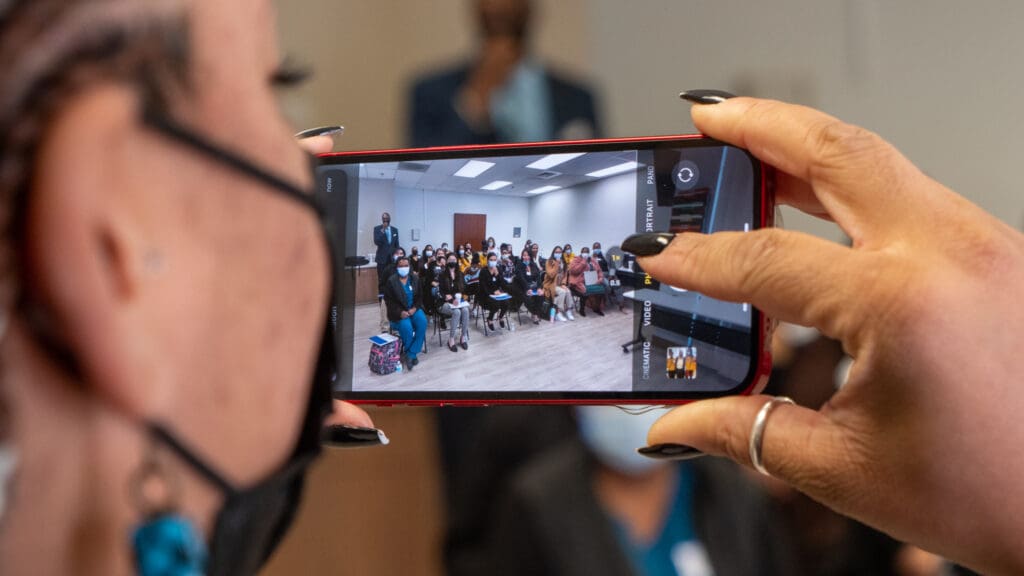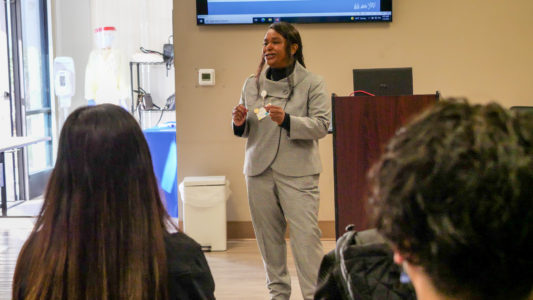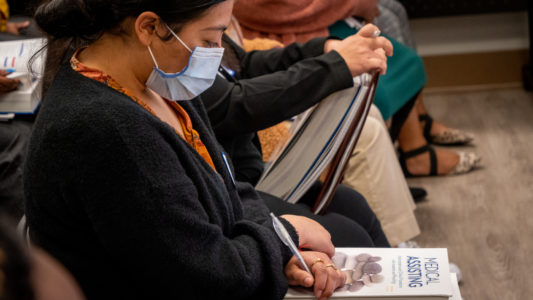Medical Assistant Training Program Fosters Opportunity and Diversity in Healthcare
Back by popular demand, WellSpace Institute and the Greater Sacramento Urban League (GSUL), with funding from Bank of America, welcomed the second cohort of students to the Medical Assistant Training Program on Feb. 2. The program takes students from historically vulnerable and racially diverse communities and ushers them into healthcare careers.
The Medical Assistant Training Program is a six-month endeavor with course studies including anatomy, physiology, infection control, medication administration, pharmacology, laboratory testing, privacy, and more. As allowed by law, each graduate is authorized to provide clinical care within their scope of practice under the direction of a licensed physician or healthcare provider.
Traditional medical assistant training programs require students to pay hundreds to thousands of dollars out-of-pocket to get professional training. In contrast, WellSpace Institute programs pay students while in training. Upon graduation, students are offered jobs at WellSpace Health as employees where they may serve as medical assistants in health centers located throughout Sacramento, Placer, and Amador counties.
“One of the things that we are paying attention to, as an organization, is what the impact [of the COVID-19 pandemic and resulting unemployment] is on the communities that we serve.” As mentioned by Brenda Shipp, Chief Operating Officer of WellSpace Health and the program architect, “A lot of people were becoming unemployed, we were short on medical assistants and there wasn’t a lot of diversity among the medical assistants. So, we came up with the idea that we wanted to create a medical assistant program that would address diversity and help with what was going on in the economy, especially in low-income communities.”
Between 2019 and 2020, the statewide unemployment rate rose to 10.1%. Sacramento saw unemployment rise to 9.3% at the peak in 2020. Communities most affected by COVID outbreaks were also impacted by higher levels of unemployment – the very communities that encompass the majority of the patients and clients that WellSpace Health serves.
The GSUL’s reputation and expertise with community outreach established an ideal environment for recruitment into the new program while WellSpace Institute had the healthcare education and operations experience to operate the clinical training program.
The purpose of the program address two increasingly challenging problems in healthcare – a decline in available work professionals and an absence of diversity in staffing. Shortages across medical professions are putting a strain on the healthcare industry as professionals leave the field due to either aging out or burnout. However, in the current medical climate, work shortages are only part of the problem.
Race in healthcare is a complicated subject. People of color and other minorities have a history of health disparities. A health disparity is defined as a “particular type of health difference that is closely linked with social, economic, and/or environmental disadvantage.” Health disparities can lead to people of color experiencing higher rates of disease, mistrust in the healthcare system, cultural barriers, minorities being underrepresented in the healthcare workforce, and implicit bias from medical providers.
While there is no one cure-all for a problem this deeply rooted in the fabric of American Healthcare, there are ways to chip away at the problem and bring trust back into medicine. Hiring from within the community and increasing diversity are important starts.
WellSpace Institute anticipates opening applications for its third cohort in July. Those who wish to apply are encouraged to reach out to the Greater Sacramento Urban League. To be considered for the program, interested individuals must complete a two-week workforce preparedness training with GSUL. Those who complete the application and training will be invited to an interview with WellSpace Institute will select 25 candidates.



